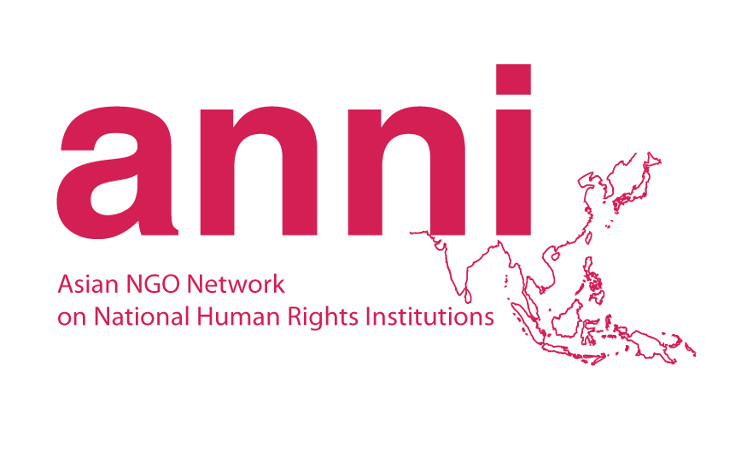 (Bangkok, 3 October 2019) – The Asian NGO Network on National Human Rights Institutions (ANNI) and its members deplore the flawed selection process for the appointment of new commissioners for the National Human Rights Commission of Bangladesh (NHRCB). The lack of a participatory, transparent and merit-based selection process has resulted in the selection of commissioners with poor track records on human rights. This will affect the independence of and public confidence in the Commission.
(Bangkok, 3 October 2019) – The Asian NGO Network on National Human Rights Institutions (ANNI) and its members deplore the flawed selection process for the appointment of new commissioners for the National Human Rights Commission of Bangladesh (NHRCB). The lack of a participatory, transparent and merit-based selection process has resulted in the selection of commissioners with poor track records on human rights. This will affect the independence of and public confidence in the Commission.
On 22 September 2019, the legislative and parliamentary affairs division of the Ministry of Law, Justice and Parliamentary Affairs announced the appointment of a former Senior Secretary of the Ministry of Women and Children Affairs, Nasima Begum, as Chairperson of NHRCB. Another former Secretary, Dr. Kamal Uddin Ahmed, was appointed as a full-time member of the Commission.
Other newly appointed honorary members include: another former Secretary; a senior advocate of the Supreme Court; the former Chairman of the district council; and former senior district and session judges. These are all former government employees with limited experience and expertise in the area of human rights. One is also affiliated with the ruling party.
As required by the Paris Principles and the General Observations,[1] the selection and appointment process of NHRCB members should be transparent, participatory, merit-based, and take into consideration socio-cultural diversity.[2] ANNI is concerned that these fundamental requirements have not been complied with. The process itself was closed-door, involving a selection commission primarily comprised of government appointees. Moreover, the quorum requirements seem to have only allowed nominations from those members.
Despite the flaws in the appointment of the selection commission, a transparent and inclusive process could have still been achieved through public engagement in the selection and screening of the candidates. The appointment could have been done in consultation with key stakeholders on the ground, specifically non-governmental and civil society organisations. As stated in the General Observations, expertise and experience of non-governmental and civil society organisations will result in greater public legitimacy of a National Human Rights Institution, in this case the NHRCB.[3]
The Global Alliance of National Human Rights Institutions Sub Committee on Accreditation (GANHRI-SCA) in its 2011 and 2015 review accorded ‘B’ status to the Commission. The GANHRI-SCA noted a range of concerns, including the lack of transparency in the selection process of members. To date, the Government has not taken any measurable or progressive steps to address the fundamental flaws raised by the GANHRI-SCA.
ANNI and its members urge the Government to take immediate steps to amend the NHRC Act 2009 to assure it conforms to the Paris Principles, including by ensuring representation of civil society members in the selection process.
ANNI and its members call on the new Commission to continue to protect and promote the human rights of all Bangladeshis, and increase its efforts to address the limitations identified by GANHRI-SCA, so it can raise its international standard from ‘B’ to ‘A’ status. Such would help to regain the confidence of the public.
As the NHRCB acts as a bridge between the Government, civil society organisations and the public, ANNI and its members look forward to working with the NHRCB, and expect its full cooperation in further strengthening its mandate.
***
For a PDF version of this statement, please click here.
About the Asian NGO Network on National Human Rights Institutions (ANNI)
The Asian NGOs Network on National Human Rights Institutions (ANNI) was established in December 2006. It is a network of Asian non-governmental organisations and human rights defenders working on issues related to National Human Rights Institutions (NHRIs). ANNI has members that are national organisations from all over Asia. ANNI currently has 33 member organisations from 21 countries or territories. The work of ANNI members focuses on strengthening the work and functioning of Asian NHRIs to better promote and protect human rights as well as to advocate for the improved compliance of Asian NHRIs with international standards, including the Paris Principles and General Observations of the Sub-Committee on Accreditation (SCA) of the Global Alliance of NHRIs (GANHRI).
[1] The Paris Principles (“Principles Relating to the Status of National Human Rights Institutions”) set out the minimum standards required by national human rights institutions to be considered credible and to operate effectively. The General Observations provide guidance to NHRIs, Governments and others on the nature and content of the Paris Principles.
[2] Paris Principles B (1) and SCA General Observations 1.8
[3] SCA General Observations 1.8



